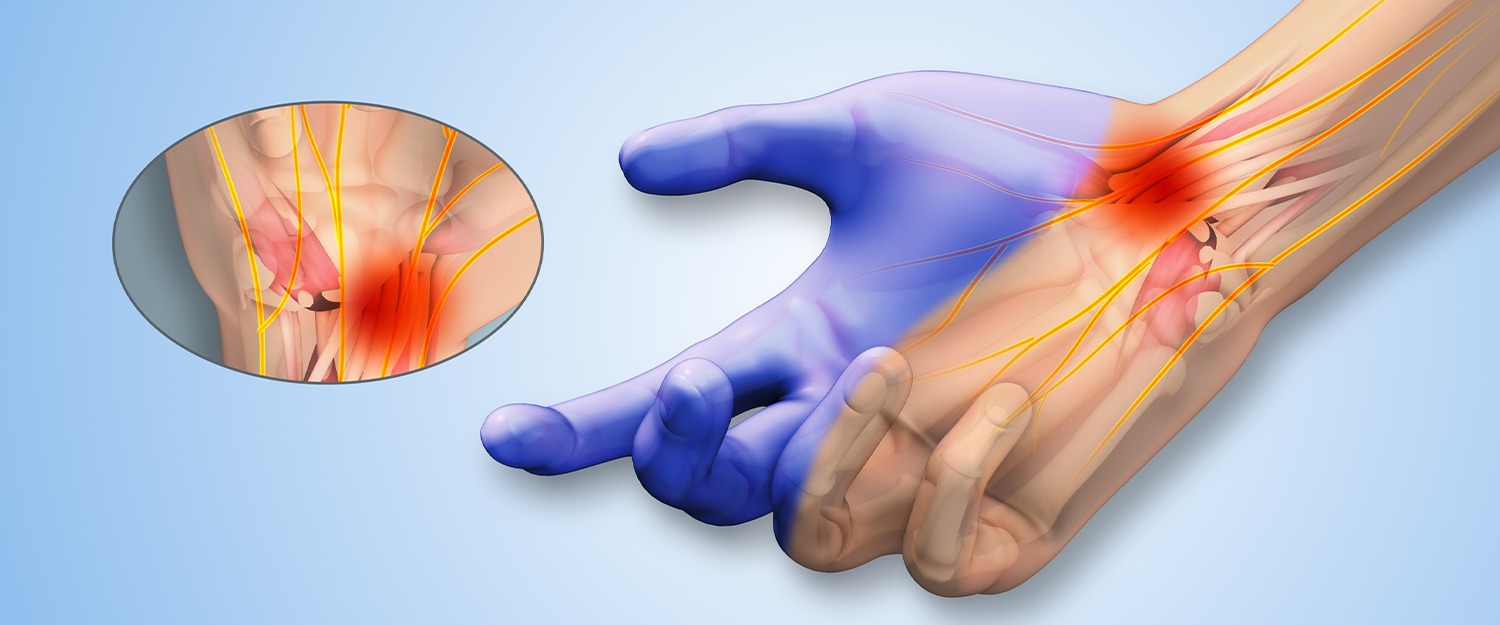
5 Subtle Signs of Carpal Tunnel Syndrome That You Should Never Ignore
Carpal Tunnel Syndrome (CTS) might sound like a problem only for people who spend long hours typing on a keyboard, but the truth is—it can affect anyone. From office workers and gamers to chefs and factory workers, repetitive hand and wrist motions can gradually lead to this painful condition. The early symptoms are often mild and easy to brush off, but ignoring them can lead to permanent nerve damage and reduced hand function.
Seeing the first signs of carpal tunnel syndrome can be a lifesaver. The sooner you take action, the greater your chances of controlling it without surgery or permanent disability. Let’s examine five early signs you shouldn’t ignore.
Tingling or Numbness in the Fingers
One of the first and most frequent warning signs of carpal tunnel syndrome is tingling or a numb feeling in your fingers—particularly your thumb, index, middle, and ring fingers. Your hand may feel like it’s “falling asleep.” This sensation may begin slowly and come and go. You may notice it more when you have something in your hand, such as a phone, steering wheel, or book.
It’s easy to brush off numbness initially, but if it continues to happen—particularly at night when your hands are resting—which is a common symptom—then it’s worth getting checked out. Most individuals with CTS wake up with a necessity to shake their hands in order to find relief.
Pain That Radiates Up Your Arm
Initially, the pain from carpal tunnel syndrome can be confined to your wrist or hand. As time goes by, however, the pain radiates up into your forearm or even your shoulder. This can be a problem since most people mistake it for muscle strain or arthritis.
What makes carpal tunnel pain distinctive is that it’s frequently accompanied by repetitive wrist movement, and it may be worse at night. It’s also quite typical to experience dull ache, as opposed to sharp or scalding pain.
Weakness in Hand or Dropping Things
Another giveaway symptom is hand weakness—especially that of gripping things. If you’ve found that you’re dropping items more frequently or having a difficult time opening jars, it can be the result of muscle weakness brought on by pressure on the nerves within the carpal tunnel.
This happens because the median nerve, which controls many of the muscles at the base of your thumb, becomes compressed over time. If the nerve is under pressure long enough, the muscles can shrink and weaken. This is one reason why timely diagnosis and treatment are so important.
Clumsiness or Difficulty with Fine Motor Skills
You may have difficulty buttoning a shirt, writing neatly, or doing small tasks with small tools. These daily activities depend on fine motor coordination, and it gets impacted when the median nerve is not functioning well. It’s not only about pain—it’s about control.
Most people attribute these problems to tiredness or old age, but since you’re fairly healthy and realize your hand coordination has drastically reduced suddenly, it might be a good idea to determine if there is something more serious going on.
Symptoms That Worsen at Night
This is perhaps the most neglected but frequent early symptom of carpal tunnel syndrome: your symptoms worsen at night. You may fall asleep fine but wake up with numb, tingling hands or even stabbing pain up your arm. Why does this occur? Because most of us sleep with our wrists flexed, which can put pressure on the carpal tunnel and pinch the median nerve.
Nighttime symptoms may disrupt your sleep and contribute to daytime fatigue, exacerbating the issue. If you’re having frequent nighttime pain in your hands, it’s time to hear what your body is saying.
When Should You See a Doctor?
If you’re experiencing any of these symptoms—particularly more than one—it’s crucial not to put it off. Although over-the-counter pain medication, wrist braces, and stretching may temporarily alleviate the issue, carpal tunnel syndrome generally doesn’t fix itself.
A doctor can do some simple tests to see if you have CTS and how severe it is. In less severe cases, non-surgical methods might suffice. In advanced cases, a small operation can give you relief for many years and avoid irreversible damage to the nerves.
Disregarding the initial warning signs could result in permanent nerve dysfunction, chronic pain, and muscle atrophy. Acting early on can safeguard your mobility, your comfort, and your enjoyment of daily activities.
Don’t Let the Pain Linger—Get Expert Help
If you’re experiencing any of these early signs of carpal tunnel syndrome, don’t brush them off. Your hands play a critical role in your daily life, and delaying treatment could mean facing long-term consequences.
Conclusion
Adam Vital Hospital can assist. Our skilled orthopedic team employs leading-edge diagnostics and tailored treatment plans to address carpal tunnel syndrome at any point. From conservative therapy to minimally invasive interventions, we’re dedicated to enabling you to regain total function to your hands and wrists—so you can continue living comfortably and securely.
Phone Adam Vital Hospital today and begin the journey toward sustained relief.

